A What the Health review, a dietitian’s thoughts on the controversial Netflix documentary promoting a vegan and plant based diet.
The first time I tried to watch What the Health, the new Netflix shock-umentary about the apparent dangers of a meat and dairy based diet, I had to turn it off. I think I got about 5 minutes in while walking on the treadmill before I decided it was making my already least favourite activity (cardio) even more painful. But alas, I love you guys, so I thought we better get back to the grind and to give you all my honest thoughts, I watched it again. I watched it in detail. I rewatched parts of it. I wanted to pull my eyes out the entire time.
Now, before my plant-based sisters and brothers get upset, let me make this clear. I wasn’t mad that they were blatantly pushing a vegan agenda. I’m honestly all for enjoying more plant based foods in your diet for a variety of health and environmental reasons. But, I was pissed at the fear-mongering tactics they took, the “low blows” so to speak that got them the views and buzz all over the world. Here are some of my serious things you should understand before watching What the Health.
What the Health is rife with Misinformation and Cherry Picked Studies
One of the overarching take home messages is that all meat and animal products cause obesity, cancer, diabetes, heart disease and all-cause mortality. They shift from putting any focus on sugar (or inactivity, or any other cocktail of foods), and put the blame exclusively on meat. The first thing I can tell you is there is no high quality systematic review that has studied all of these variables at once that concluded with this claim. None. Nutrition research is notoriously hard to do because it’s impossible to isolate a single food from someone’s diet and see its effect, just like it’s impossible to isolate meat as the culprit of disease when there are a variety of other factors at play. One of the physicians attempts to “simplify” the problem with a bogus cookie analogy (time stamp 9:30). His theory is that it’s not the sugar in the cookie that’s killing us, it’s specifically the butter and shortening (aka. the saturated fat-packed animal products). That’s a bold statement and I would love to see this alleged cookie study where he was able to isolate the butter from the sugar in the cookie, and make that direct causation. There isn’t a stupid study because it’s impossible. It’s also incorrect, as we now know that an excess of sugar in the diet also may contributes to a wide range of chronic disease. But alas, absolving sugar and demonizing meat by taking bits of the research that confirm their theory is the overarching theme of this film. They cherry picked the facts. Let’s review some of these cherries.
What the Health on Meat and Cancer
At the start of the film, Kip references the 2015 WHO review that links processed meats to colorectal cancer. It’s important to first say that a person’s lifetime risk of developing colorectal cancer is 5%, and the review found that if a person eats processed meats every day, their risk would increase by 1%, which comes to a total of 6%. I wouldn’t call that link remarkably significant.
Another thing the film loved to do was make the association between smoking and eating meat. It is true that processed meats were placed in the same category as carcinogens like asbestos and tobacco, however they were not making associations in the process. Actually, the studies compiled by the WHO concluded that the only similarities they were making was that the strength of the research linking processed meats to cancer was the same as the strength of the research linking tobacco to cancer. The associations made were only based on the strength of the research and not that they are AT ALL linked. So, no, eating meat is not like smoking a cigarette. And remember the strength of the research only found that your risk of developing colorectal cancer is only increased by 1% if you eat processed meats every day.
This lack of understanding the WHO research was also apparent in the way the media covered the topic. Admittedly, the WHO needed to be a little clearer in the information they were providing because it created a hell of a lotta confusion for consumers.
What the Health on Growth Hormones & Antibiotics in Food
One of the other major topics discussed around meat and dairy was the use of growth hormones and antibiotics. American and Canadian governments vigorously test the use of antibiotics and hormones and there is a maximum amount that is allowed in livestock. That amount is still well below any dangers associated with it. Interesting factoid here: in Canada, growth hormones are not permitted in animals (except for beef), so if you’re worried buy organic beef (organic beef does not permit growth hormones) or enjoy beef as a treat. Antibiotics are used to treat animals, much like how humans use them. If antibiotics are used in dairy cows then they are separated from the herd and their milk is not used. So, it’s safe to say that no hormones or meds are found in the milk that we drink. Another factoid: Here in Canada, artificial growth hormone (recombinant bovine somatropin/rbST) is banned from use in production of both organic and conventional milk because they’ve been associated with infertility and some negative effects in humans. So, you can thank your government for some awesome regulations. For more information on the impact of dairy on our health, please check out my 6-part series!
What the Health on Eggs and Smoking
WTF Statement: “1 egg a day is equivalent to smoking 5 cigarettes/a day for life expectancies”
I dug up this study from 2012, and I’m still not confused. A Canadian University looked at individuals that smoked and ate egg yolks, and tried to make the link that the more egg yolks eaten, the more plaque that developed on arteries contributing to their risk of developing coronary artery disease. Researchers determined how much people smoked and how many egg yolks they ate over time and found that the plaque increase from eating eggs “follows a similar pattern to that of cigarette smoking”. From there, it was assumed that eating eggs was equivalent to smoking a cigarette but this association is in no way a causation. This study failed to do a number of things. Participants were fairly old, with an average age of 61 years which already puts you at risk for health problems. Many health experts spoke out against the study, saying that the study was flawed and had a very weak research design. Much like the research in What the Health, Kip doesn’t seem to explain the difference between ‘association’ and ‘causation’ which in this case is very significant. In nutrition research, we can only find associations but can never say that one thing causes the other. In the egg study, for example, researchers did not account for the other foods in an individual’s diet and it is possible that those who ate a lot of eggs tended to eat other high cholesterol foods as well, and possibly exercised less. These are crucial lifestyle factors that should have been included. But Kip didn’t critically appraise this research. Instead he saw a catchy title that would create a ton of fear without strong enough backbone to support it. Now, that’s just irresponsible and poor journalism.
WTF Statement: “There’s nothing healthy about eating the yolk of an egg”
OK yes, egg yolks carry cholesterol but there are so many other nutrients that come with the yolk which means the benefits outweigh the potential harm. Eggs yolks contain protein, healthy fats, calcium, iron, phosphorus, selenium, folate, B12, vitamin A, D and carotenoids. And if you are concerned about the cholesterol content, research suggests that dietary cholesterol has little effect on our blood cholesterol and does not affect a person’s bloodwork.
What the Health on Dairy and Bone Health
The film does not back down when it comes to dairy. They even claim that dairy causes autism… oy vey (of course they do!). And yes, I’m sure you can single out poor quality studies that make these claims, however a review that gathered all the recent evidence on the topic and found ZERO associations between milk consumption and all-cause or cause-specific mortality. And for the conspiracy theorists out there, the review did not declare any conflict of interests, and the funding was provided in the form of a grant from a Swedish medical University: The Karolinska Institute.
What the Health on Sugar vs Fat
The film starts with a discussion about the association between sugar intake and diabetes. I do agree with the fact that eating sugar does not cause diabetes, however rather than discuss the complexities of diabetes pathophysiology, the doctor quickly just dumps the blame on animal products. The doctor makes the claim that when we ingest animal products, the fat from it is not used and simply builds up in our body like plaque and is causing insulin resistance. This means the sugar you’re eating cannot get naturally into your cells. This philosophy is right, however I don’t agree that fat is the only culprit, and really excess calories as a whole is contributing to insulin resistance because our body can only store so much at a time. It is mentioned that when we eat carbs we burn it or we store it, but he just stops there and doesn’t mention the potential weight gain once those stores are at their max (which isn’t that hard to do!). As we know when we store carbs in the form of glycogen, over time if it’s not used up, it will be turned into fat and stored that way. We also know, that in the absence of carbs, excess fat can be used and burned and not simply stored and turned into more fat. We see that individuals on a keto diet are able to lose weight, however whether that’s sustainable is a whole other discussion (which you can check out here). The fact of the matter is, that if we consume excess calories and do very little physical activity, no matter what we’re eating (fat or carbs), we will store it and likely gain weight.
What the Health is a Perfect Storm of Paranoia & Fear Mongering
Persistent paranoia is the norm throughout the film and some of it is PAINFULLY obvious to me.
What the Health’s Gotcha Journalism
First of all, these directors are obsessed with creating the gotcha moments, which aren’t really gotcha to begin with. Gotcha moments are not respected in the journalism community because they’re basically a form of entrapment where you know the answer, and you’re attempting to catch the individual in a lie. They’re just not the most professional way to do business. Let me give you an example. Throughout the film, Kip speaks with a variety of organizations and the guy has, like no game. He calls a 1-800 number and talks to the lowest people on the food chain demanding an answer to his insanely loaded question. Granted he’s not a journalist, but to be going around talking about a sensitive controversial topic, he probably should have gotten a bit of guidance. The majority of the time, Kip ends up talking to admin assistants who definitely don’t get paid enough to make an informed statement. I find this is so disheartening and disingenuous because he’s trying to prove this bogus point that there’s a conspiracy going on, but ends up it looking more like he’s just grasping at straws. But to some who don’t see through that bull shit, I can see how it can be dangerous and completely misleading. It has you asking, “YA! What are those government shills HIDING?!” They then throw in some menacing music and create the illusion that there is something lurking beneath the surface when really he’s just plain bad at looking for answers.
What the Health is OVER THE TOP Dramatic
The What the Health directors are also a fan of the dramatics – from the creepy horror film music, to putting interviewees in the dark with a shadow-casting spotlight on them. And who could forget the painful imagery of children eating pan fried cigarettes and cigars in hot dog buns. Shock much? Aside from the aesthetics, they also had a wide variety of soundbites that were over the top dramatic. When one physician was asked whether chicken was better than eating red meat, his response was: “it’s a question of whether you want to be shot or hung” (15:19). Seriously man, give it up!
What the Health’s use of Big Scary Words & Statements
Another technique they use throughout the film is big scary unpronounceable words. Every so often a doctor will drop a long ass “toxin” name that I’m sure just sounds like jibberish to the majority of viewers. And when we don’t understand certain words, concepts or pathophysiology processes, we can’t think critically about them and question whether or not that information is correct. They also use scary words we know we don’t like. Like toxin, poisin, and pus. In one scene, a doctor says the word “pus” a shit ton of times… like a ton. He must have been paid per pus. Well, after a while you say “pus… meat…pus… meat” you create that association solely based on semantics and no one likes the sound of pus. This all perpetuates the fear and freaks people the hell out.
Just when I thought the fear mongering couldn’t get worse it does… they also chose to scare pregnant women and unborn children. At this point in the film (time stamp 23:28) the topic of dioxins is introduced, which is a chemical that is found in the fatty tissues of animals. The WHO states that “more than 90% of human exposure is through food, mainly meat and dairy products, fish and shellfish”. Once in the body, the only way dioxins can exit the body is via the placenta by giving birth or via the breastmilk. Health Canada has already stated that over the years there’s been a reduction in the overall release of dioxins from food sources (60% reduction since 1990s). This has been happening because the interventions to prevent pollution and the introduction of clean energy policies. See? Not so scary after all.
What the Health’s Dangerous Associations
Throughout the film, eating meat is continually associated with smoking or drinking alcohol. When Kip is on the phone with a health organization, he equates having meat recipes on a website to having a “how to roll a cigarette” on a lung cancer association website. In another scene, a c-list comedian equates having chicken at a diabetes prevention event is like having alcohol served at an AA meeting. These are bold associations, and are definitely included in the film because of an agenda. Not that I have to make this obvious, but alcohol/drugs are NOT the same as food. Food nourishes us and we require it to live and function on a daily basis. Alcohol and illicit drugs can be very harmful, addictive and can actually lead to nutritional deficiencies. Sorry, but you can’t convince me that glass of wine is giving you all the necessary nutrients that your body is craving. These dangerous associations continue to make food about a moral issue by saying that eating meat is equivalent to doing drugs or drinking alcohol, which again is an irresponsible stretch.
What the Health and the Art of the Testimonial
Throughout the doc, Kip speaks with a handful of individuals who have been suffering from a range of diseases from osteoarthritis, type 2 diabetes and heart disease. The directors create the “before and after” sequence painfully convincingly.
BEFORE:
Subjects are filmed in ill-lit environments, wearing drab clothing with very little colour, no makeup, messy hair, and they’re discussing how disappointed they are with their life and their illness. Bottles and bottles of pills and other ailments (i.e. walking with a walker) is made painfully obvious.
AFTER:
Near the end of the doc, Kip returns to meet up with them after they’ve been following a vegan diet for two weeks – man are things looking different. First of all, the scenes are filmed in the great outdoors with the sun shining on them, and individuals were given a terrific makeover! They’re now wearing bright clothing, makeup and apparently moved out to a swankier neighbourhood! This is blatant manipulation. The filmmakers are curating what you see by creating the association that veganism = light and happiness, while meat eating = a dark, dingy, lonely life.
Kip also interviews a variety of ‘attractive’ athletes that follow a vegan diet. All of these testimonials scream advertisement as if they’re saying they’re happier and prettier on the diet. By now, I think it’s pretty obvious (if it miraculously wasn’t already) that this film is oozing with bias.
Yes, testimonials are effective at tugging at your heart strings and personal stories can be powerful, but the fact of the matter is, if they are going to drop studies throughout the film, they should stick to that trend because these stories are only contributing to the dramatics to distract you from the evidence… which is scarce.
What the Health’s Obsession with Corporate Influence Conspiracy
Yes, as a dietitian, I would love to see a world where we don’t need corporate sponsorship, but the fact of the matter is that research studies, especially well-designed research studies require a ton of people, a ton of time and resources which requires a TON of money. Money that food industries have and see it as not only a marketing tool, but a way to improve their own credibility. There’s a point in What the Health (time stamp 52:10) where Kip points out the abundant funding in research studies and the sponsorship for large health organizations. This is a sensitive topic but there is a need to point out the term peer-reviewed. Peer reviewed means knowledgeable experts in the field evaluate a study for its scientific credibility. They also look at whether paper explicitly states their funding and any conflict of interest. This process gives a paper validity and a variety of scientific studies that counter this film may be funded by food industries, but they are also peer reviewed and are critically analyzed for any potential bias. Still not convinced? Check out my post on big pharma and government funding here.
There were a ton of doctors in this film, all with pretty radical views, but before we discuss that, let’s see if you can find a few patterns.
Just to name a few:
Dr. Joel Kahn, M.D., Cardiologist, Kahn Center for Cardiac Longevity
“I describe my practice as LIVe cardiology: Lifestyle, Integrative and Vegan” – this comes from his blog and he was named PETA’S Sexiest Vegan Over 50.
Dr. Michael Greger, M.D.
He has spoken at conventions on animal rights, and is a vegan.
Dr. Michael Klaper, M.D.
Klaper makes a living off the plant-based diet philosophy – has contributed to many books and films, even offers costly retreats to a ranch to discuss his philosophy and is a vegan.
Dr. Neal Barnard, M.D., Clinical Diabetes Researcher
Barnard is the author of many books claiming they can reverse diabetes through a plant based diet. PETA has funneled close to $1.3 million to Dr. Barnard’s organization: Physicians Committee for Responsible Medicine. He even writes a column for PETA’s monthly magazine. And yes, he is a vegan.
Dr. Garth Davis, Weight Loss Surgeon, The Davis Clinic
Follows a vegan diet and has a book known as “proteinaholic” which emphasizes our obsession with animal protein.
Dr. Caldwell Esselstyn, M.D., Clevelan Clinic Wellness Institute
On his website, he writes about how a plant-based diet reverses heart disease and is vegan.
Dr. Milton Mills, M.D., Critical Care Physician
Has spoken at plant-based summits and is cited in a variety of vegan blogs and organizations as a plant-based promoter and YES, is vegan.
The moral of the story. All of these doctors are vegans and promote the plant-based philosophy. A majority of them speak out for animal rights and have ties with PETA. The bias nature of this doc clearly cuts both ways. I would have wanted to hear from at least one physician that is not solely guided by their dietary intake. As dietitians, we may have our own personal way of eating, but we tailor our advice to meet the needs of our clients and patients. For example, I am neither vegan, nor gluten free (nor paleo, keto, or any other diet), BUT on my blog, I support and create content for all of these populations.
What I Liked about What the Health
OK so I’m not just a Debbie downer, here’s what I thought as good about What the Health.
The Environmental Perspective
One of the strong arguments the doc does well is the impact meat production has on our environment. If you already weren’t aware of the destruction many of these factories have, not only on our ecosystem but also the surrounding communities that face these impacts every day, this film highlights them well. I’m happy about that because I can see HUGE reasons to eat more plant-based from an environmental and ethnical perspective. Do all animal farming facilities deserve to be painted with the same brush? I think it’s important to understand that yes, all meat rearing will use up considerable resources, but the magnitude may differ between farmers’ practices.
We Need to Eat More Plants
Michael Pollan said it right that we should eat more plants, and I am a firm believer that we could do with a lot more plant-based protein in our diet. When done right, a vegan diet can be super nutritious and can contribute to a healthy lifestyle and healthy environment. But pushing people down that road with fear is just not cool. “You’re okay with killing the environment and exposing babies to toxins by eating meat?” Hey, I know it works, but I’m sure many vegans would not want to be associated with fear and shame. It’s important that we come into any decisions about our diet from a place of pleasure and comfort because restricting out of shame has a serious potential to lead to .
What the film doesn’t discuss is the impact simply cutting back on meat can do for our health, and maybe even on par with restricting meat completely. Diets like the Mediterranean diet incorporate fish, poultry and some red meat and have done wonders in reducing our risk for several chronic diseases and all-cause mortality. I like the Mediterranean diet, because it focuses more on the quality of protein, fats and carbs instead of going to the extreme by restricting foods you may find pleasurable. A more inclusive diet that still carries pleasure is the type of diet I can get behind. Having said that, if you’re comfortable and happy on a fully plant-based diet, then go for it- you do you!
Conclusion on What the Health
The biggest beef with these nutrition/food docs like What the Health is that they become irrelevant once the closing credits hit. Nutrition research moves fairly quickly, and the minute we “think” we understand a concept, research is done which counters it and we’re back at square one. This is why translating these docs as the complete truth is just irresponsible and misleading.
If there’s one thing you can take away from this, is that documentaries are far from objective. The What the Health directors were also behind the film “Cowspiracy” and Kip has been following the vegan lifestyle for decades despite the film making it look like he was discovering the diet for the first time. All of these food docs take an obvious stance, and in this one you are getting one side of the story and a truly black and white explanation. Nutrition isn’t simple, so don’t expect to “get it” in a 90-minute documentary.
Now I want to know, have you watched What the Health?
What did you think?
Did it entice you to eat more plant based?
Leave me a comment below with your thoughts!
Contribution by Sofia Tsalamal, MHSc, RD
Updated on August 28th, 2017

Abbey Sharp is a Registered Dietitian (RD), regulated by the Ontario College of Dietitians. She is a mom, YouTuber, Blogger, award winning cookbook author, media coach specializing in food and nutrition influencers, and a frequent contributor to national publications like Healthline and on national broadcast TV shows.
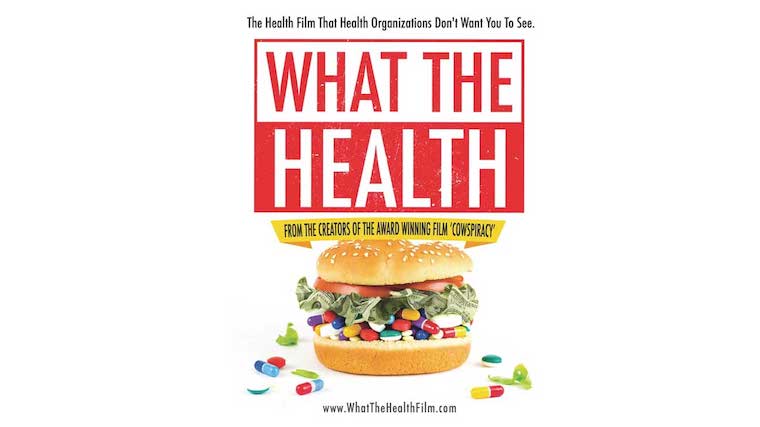
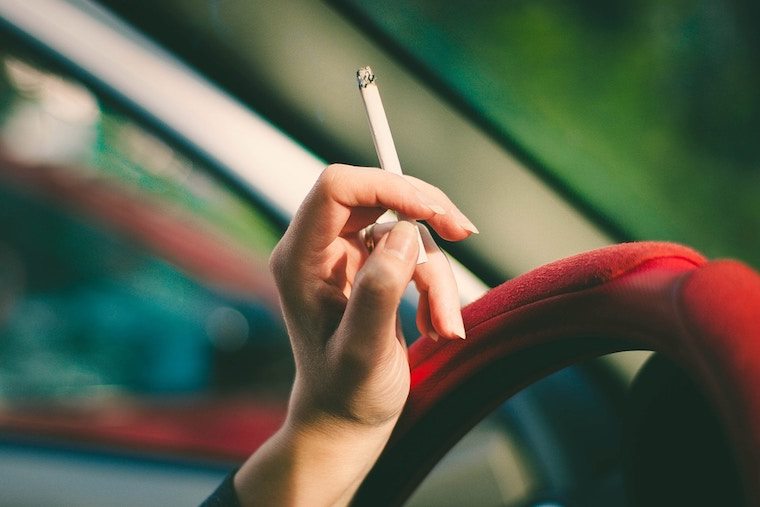
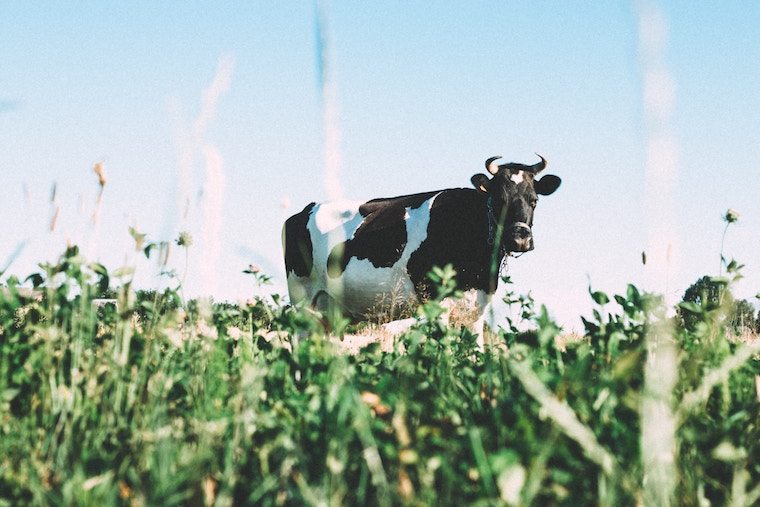

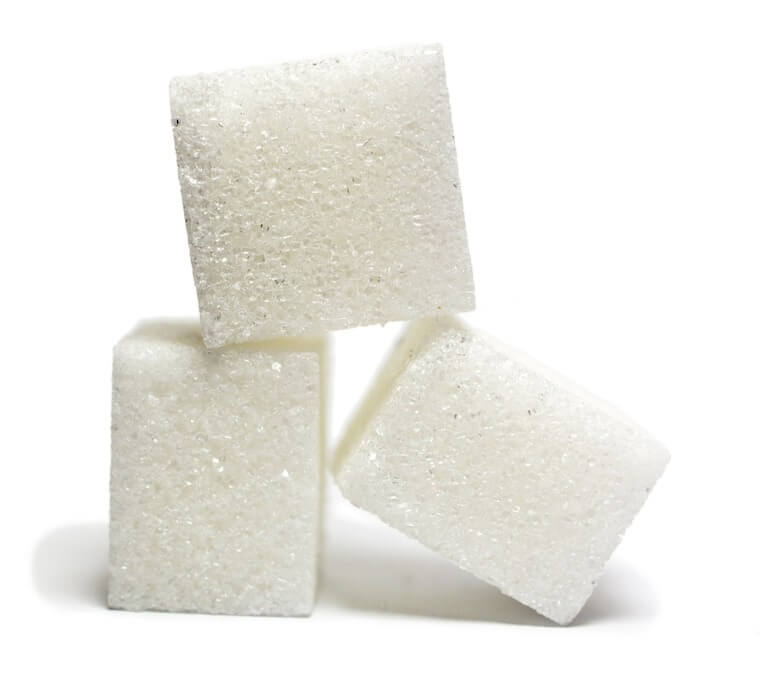



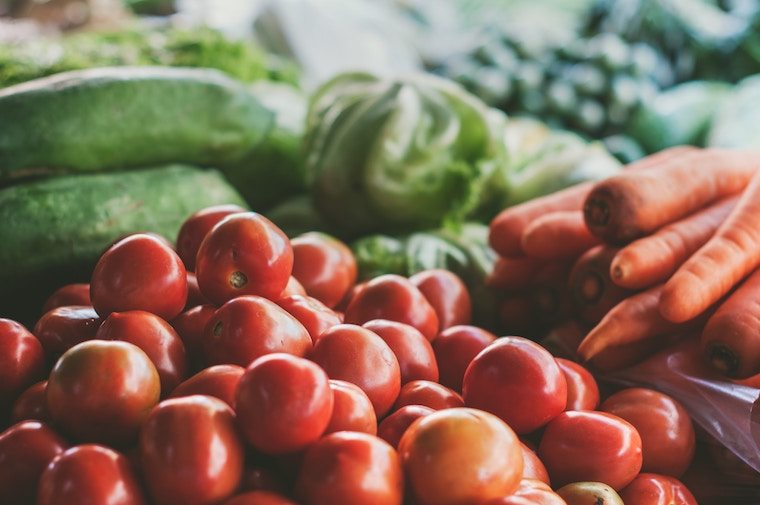
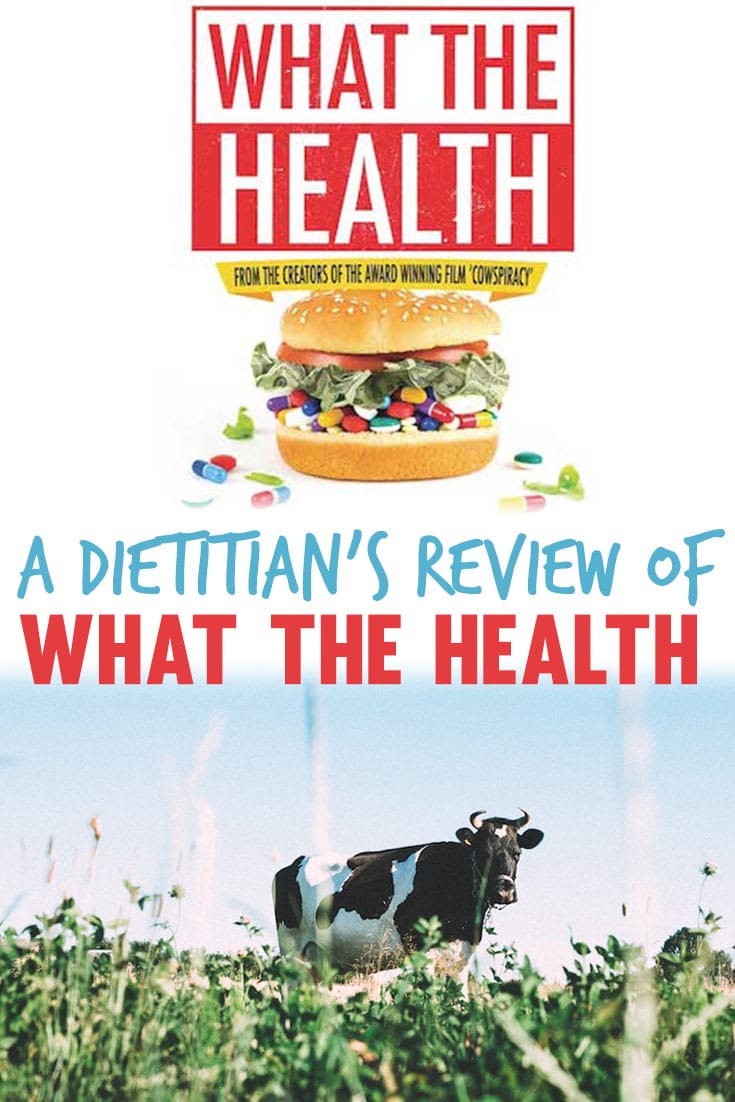

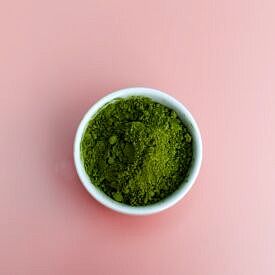
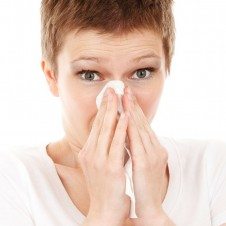

Jill Conyers says
Very detailed review. I have such a hard time with books like this that are in your face, based on fear and alienate a eat more plants perspective.
Abbey Sharp says
yup, I’m with ya!
Elissa says
Really awesome review. I couldn’t get through it…stresses me out they can spread so much misinformation to so many people while dietitians are helplessly waving their arms in the background. *takes long puff on meat cigar.*
Abbey Sharp says
haha yup! So stressful !Thanks Elissa 🙂
Ilka says
Here is my personal opinion – I think everything too extreme is never good. I believe incorporating lots of vegan and vegetarian foods/dishes into your diet after a certain age is actually very good for you.
I personally love incorporating plenty of vegan foods into my daily diet, but I also love eggs and fish and my occasional chicken way too much to give it up entirely. You really need to make you’re getting the right type of plant-based protein when going all vegan, otherwise it could backfire.
Abbey Sharp says
yes totally agree! You gotta find what works for you! Thanks for sharing 🙂
Chrissy @ Snacking in Sneakers says
I’m SO tired of these fear mongering movies. But then again, no one would watch me on camera saying “let’s just eat more fruits and vegetables, eat the right portions, have treats occasionally, and move more.” Doesn’t have the same ring to it I guess 😉
Abbey Sharp says
haha sadly it doesn’t 🙁
Natalie says
I haven’t see it yet. Actually I haven’t even heard about it.. But now I need to check it out. Especially after your amazing review. You got me interested.
Abbey Sharp says
Yes, give it a watch!
Bridget @EatRightMama says
I haven’t seen it yet but I’ve heard rave reviews from some well educated friends! (Scary). That type of shock-umentary is so easy to buy into if you don’t know the research and back story. Thanks for digging out all the facts!
Abbey Sharp says
Yes, exactly! Thanks Bridget 🙂
Jenna says
I tried to watch it but then got irritated after 15 minutes and turned it off lol. Thanks for your thoughtful review 🙂 I agree that just getting people to put more plants on their plate and cut back on meat a bit is a great way to get some the benefits without going completely vegan.
Abbey Sharp says
Yes for sure! Thanks Jenna!
dixya @food, pleasure, and health says
i have not seen the documentary but now i want to see it although i will probably have same feeling as you (and many other RDs).
Abbey Sharp says
yes, most likely, but it’s still worth forming your own opinion!
Kelly @ TastingPage says
I had wanted to see this movie, but have heard about all of the inaccuracies, so I’m not sure I can keep my sh@t together and watch this. I do appreciate you breaking it all down though so people can know the real truth!
Abbey Sharp says
haha it was hard for me too lol. Thanks Kelly 🙂
Whitney @ To Live & Diet in L.A. says
“Paid per pus” – LOL! That line killed me. Fyi if you’re interested in the eco-aspect of this debate, the people who made this film also made the doc “Cowspiracy,” which is about the environmental impact of animal agriculture and does address the differences between big ag and small farmers.
Abbey Sharp says
haha yes! I must see that film as well!
Carrie says
Abbey, thanks so much for this review. Your informed and intelligent comments are so refreshing. I had a roller-coaster ride when I thought a vegan diet was the cure for everything a few years ago, and it took me a long time to recover my health after that experience. My hormones and blood sugar are so much more balanced now that I eat protein with each meal, and I also recently found out through food sensitivity testing that my immune system reacts to soy and legumes. So, it’s no wonder a vegan diet was unsustainable for me. I think this type of movie is very dangerous and I admire you for helping provide a more balanced approach to nutrition. Thank you!!!
Abbey Sharp says
Hey Carrie, it definitely might not work for everyone, which is why it’s important you find what works for you! Thanks for sharing girl!
Jessica @Small Bites by Jessica says
I’ve seen so many reviews of this documentary lately, and always love reading everyone’s thoughts on it. Thanks for sharing yours!
Abbey Sharp says
Yes! Such a popular topic lately!
Deborah @ Confessions of a mother runner says
I have not seen it yet. As a lifelong vegetarian, I do believe there are health benefits to plant based eating. I am not a fan of the shock based statements either. So many documentaries are biased it’s often hard to know what to take away
Abbey Sharp says
Yeah definitely! I always try to take them with a grain of salt.
Laura @ Sprint 2 the Table says
I’ve heard that this one was a bit over-the-top… and some said downright fear mongering. I appreciate your honest review. This is one I think I’ll skip!
Abbey Sharp says
Yes, totally scary and not necessary.
Rachel says
Huh. I’m going to have to see this. I usually enjoy a good food debate, and I usually side with the fear mongers (hahaha) but this sounds like it goes in the wrong direction.
Abbey Sharp says
Way too scary for me lol. I just don’t see that technique as effective and makes people terrified to eat anything.